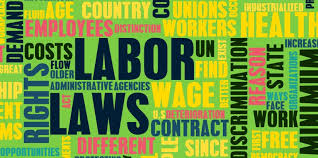Employment Law vs. Labor Law – What’s the Difference?

Here at Gold Star Law, people often ask us what exactly is the difference between an employment law attorney and a labor law attorney? Let us explain.
Generally speaking, “employment law” refers to legal issues between an employee and employer, and “labor law” refers to issues involving a union (including, in some cases, an employer refusing to allow employees to unionize, as discussed below).
At Gold Star Law, we are an employment law firm, and our employment law attorneys handle issues involving the employer-employee relationship. In some of these cases, the employee is in a union, but the issue is still a matter of Michigan or Federal employment law.
Many of the employment law cases we handle involve wage and hour law, which has to do with unpaid overtime, overtime being paid as straight time, misclassification as independent contractors, employees paid a salary instead of hourly with overtime, working off-the-clock or not being paid for “on call” time, and similar issues.
In addition to wage and hour issues, much of employment law has to do with discrimination and harassment. Discrimination can come in many forms, such as age discrimination, race discrimination, and discrimination against other protected classes of employees such as religion, national origin, and more. Harassment can be sexual harassment, but can also be harassment based on any other protected status. There is an entirely separate law we utilize, called the Americans with Disabilities Act or “ADA,” to help employees fight against disability discrimination. The ADA requires employers to provide reasonable accommodations to employees with disabilities in addition to prohibiting disability discrimination.
Labor law typically refers to legal issues involving unions. In a unionized workplace, the union often negotiates with the employer to give employees additional benefits or protections beyond what the law requires. When the employer fails to provide those benefits or protections, it is a violation of the contract between the employer and the union and can best be classified as “labor law.” Labor law also includes situations where employers refuse to allow employees the opportunity to attempt to unionize or engage in “collective bargaining,” as well as issues employees may have with the union itself.
Call an experienced Michigan employment law attorney at Gold Star Law today if you need assistance.


